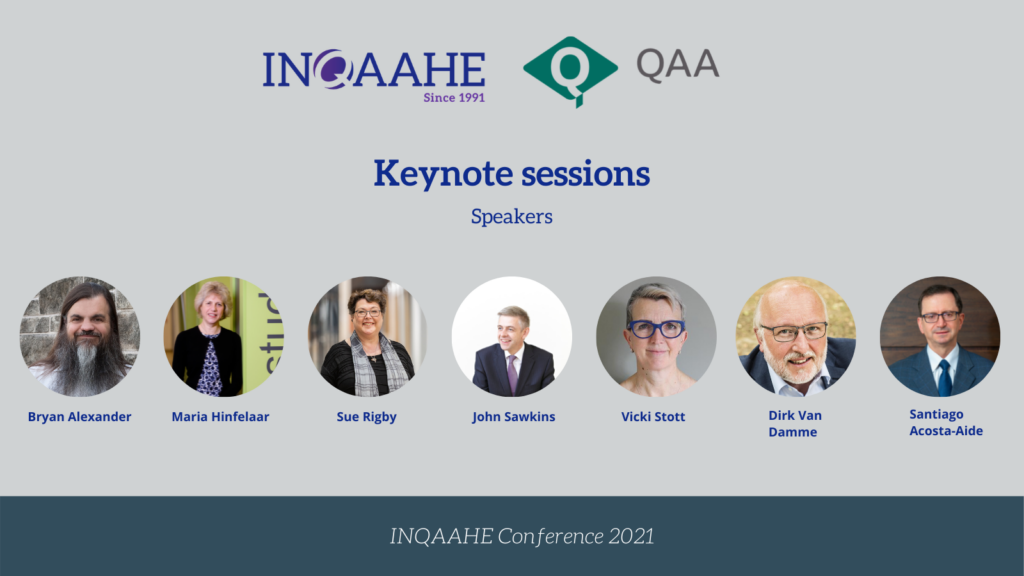Given that the Conference will be held online this year, four main keynote addresses are scheduled for the second week of June. You can find more information on each session and its corresponding presenter below. Registrations need to be made through the official Conference website.
Keynote session 1: Maintaining Trust in the Face of Uncertainty
7 June 2021 (Mon), 13:45 – 15:15 London time
 Bryan Alexander
Bryan Alexander
Bryan Alexander is an award–winning, internationally known futurist, researcher, writer, speaker, consultant, and teacher, working in the field of higher education’s future. He completed his English language and literature PhD at the University of Michigan in 1997, with a dissertation on doppelgangers in Romantic-era fiction and poetry. Then Bryan taught literature, writing, multimedia, and information technology studies at Centenary College of Louisiana. There he also pioneered multi-campus interdisciplinary classes, while organizing an information literacy initiative. From 2002 to 2014 Bryan worked with the National Institute for Technology in Liberal Education (NITLE), a non-profit working to help small colleges and universities best integrate digital technologies. In 2013 Bryan launched a business, Bryan Alexander Consulting, LLC. Through BAC he consults throughout higher education in the United States and abroad. Bryan speaks widely and publishes frequently. He recently published Academia Next: The Futures of Higher Education for Johns Hopkins University Press (January 2020), which won an Association of Professional Futurists award. Bryan is currently a senior scholar at Georgetown University and teaches graduate seminars in their Learning, Design, and Technology program.
Keynote session 2: Quality Assurance Supporting Changing Learner Journeys
8 June 2021 (Tue), 08:30 – 10:00 London time
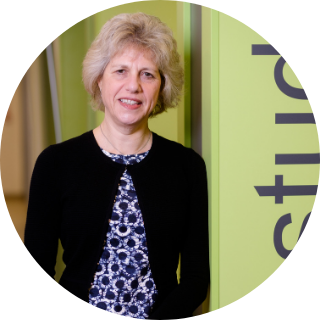 Maria Hinfelaar
Maria Hinfelaar
Professor Maria Hinfelaar is Vice-Chancellor of Wrexham Glyndwr University in Wales. She sits on the QAA Board and chairs the QAA Wales Advisory Committee. She takes a particular interest in the role of universities in regional development and has published in that area. Maria is a Dutch national who has worked in HE across The Netherlands, Ireland and the UK.
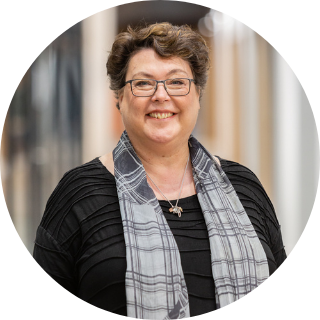 Sue Rigby
Sue Rigby
Professor Sue Rigby is the Vice-Chancellor of Bath Spa University. Sue commenced her role as Vice-Chancellor of Bath Spa University in January 2018. Previously she was Deputy Vice-Chancellor for Student Development at the University of Lincoln where she was responsible for the student journey from application to alumni activities, and had oversight of the Colleges of Science and Arts. Sue is a palaeontologist by background. After being an academic at Cambridge, Leicester and Edinburgh she moved into senior management, first as Assistant Principal and then Vice Principal at the University of Edinburgh. She is an HEA Principal Fellow. Sue is currently an Executive Member of the MillionPlus group (The Association for Modern Universities). In addition Sue is Chair of Student Minds (Student Mental Health Charity) and a Board Member for the QAA (Quality Assurance Agency). Sue is also acting as Chair of the QAA Credit Framework Group (developing a credit framework for English Universities). In the recent past Sue was the Chair of the Natural Sciences TEF Pilot Panel and Chair of the Learning Gain Steering Group for Office for Students. Sue led the Inclusive Development strand of the BIS Disabled Students Sector Leadership Group. In addition she led the work undertaken by the Higher Education Funding Council for England to define information needs for taught postgraduate students. This work has now been formalised into national policy across the whole of the UK, affecting all Universities and many HE colleges.
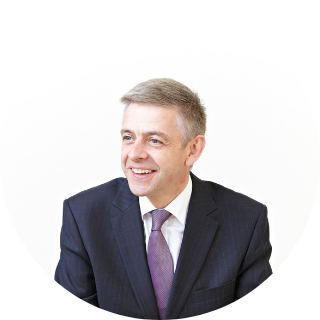 John Sawkins
John Sawkins
Professor John W Sawkins MA MSc PhD FHEA. Pro-Vice-Chancellor (Education & Student Life) at Heriot-Watt University. His background is as an economist with research interests in the economic regulation of the water industry with particular reference to water pricing, affordability and debt. He has served as a member of water industry consumer bodies and has advised economic regulatory bodies in Scotland and the rest of the UK. He is currently responsible for leading and implementing the University’s learning and teaching strategy and for academic quality assurance and enhancement across Heriot-Watt University. External quality assurance experience includes membership, of the UK Standing Committee for Quality Assessment (UKSCQA) and QAA (Scotland)’s Scottish Higher Education Enhancement Committee (SHEEC). He has served as an Academic Panel Member for the Teaching Excellence Framework (TEF) between 2016 and 2019 and is currently a Board member of the Quality Assurance Agency (QAA).
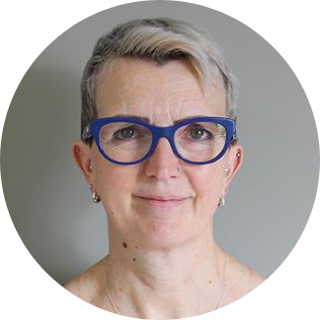 Vicki Stott
Vicki Stott
Vicki joined QAA in 2019 and has responsibility for a range of functions including: Membership & Quality Enhancement Services; International & Professional Services; Scotland, Wales & Northern Ireland; Quality Assurance England; and Marketing & Events. She is a member of the Executive Team and acts as Deputy CEO. Prior to joining QAA, Vicki worked at St Hugh’s College Oxford, where she was the Bursar (COO), a Director of Oxford Limited, St Hugh’s Conferences, St Hugh’s Estates and a founding Director of NOSCS. She has also worked at University of Birmingham as the Director of Strategic Planning and in various roles at the University of Warwick and Warwick Business School. She started her career in Higher Education at UMIST, where she worked in international student recruitment. Vicki also has experience in the commercial and charity sectors, having run her own company and been director of a charity working with women and families affected by domestic abuse.
Keynote session 3: New Quality Agendas for External and Internal Quality Assurance
9 June 2021 (Wed), 08:30 – 10:00 London time
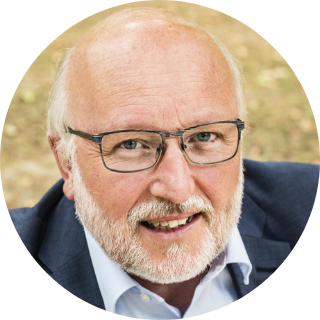 Dirk Van Damme
Dirk Van Damme
Dirk Van Damme (PhD, Ghent University) is Senior Counsellor in the Directorate for Education and Skills at the OECD in Paris, and Head of the Centre for Educational Research and Innovation. Before joining the OECD in 2008, he was professor of educational research (Ghent University, Belgium) and comparative education (Free University Brussels, Belgium, visiting professor at Seton Hall University, NJ, USA), was counsellor for several Flemish education ministers (1992-2000), General Director of the Flemish Rectors’ Conference VLIR (2000-2003), and chief of staff of minister Frank Vandenbroucke (2004-2008). He published extensively on educational quality assurance and evaluation and was a board member and expert to various quality assurance agencies and international organisations. At the OECD, he is supervising and promoting work on educational technology, the assessment of social and emotional skills, and innovation in education. His current interests are the science of learning, comparative analyses of educational systems, lifelong learning and higher education policy and evaluation. He is also leading work on the assessment of higher education learning outcomes.
Keynote session 4: Digital Disruption for HE Brings Disruption for Quality Assurance
10 June 2021 (Thu), 12:30 – 14:00 London time
The pandemic has provoked a health crisis which in turn has led to a general crisis, and specifically an educational one. Crises, as we know, are turning points, when we can either create new possibilities or end up succumbing to the accumulation of pressures. In the strictly educational field, the crisis has only accelerated and exacerbated trends that were already underway, but it has also exposed deficiencies in the system that may prevent the crisis from having a reactivating effect on possibilities. In our presentation, in addition to briefly characterizing the higher education system in LAC and pointing out the specific features of higher education in the pandemic, we intend to highlight the challenges for quality and quality assurance systems in the region.
Quality is a multifaceted and context-dependent concept. The educational crisis has exposed aspects of accreditation systems in our region that must be questioned if we want to turn higher education in Latin America into a protagonist of the new post-COVID education, and not into a system that falls into the same errors of the situation before the pandemic. Accreditation systems in Latin America have been burdened by rigidity and over-regulation, and in some cases, quality assessment has been used for political purposes or to purge the system. We will reflect on the values that should underpin the new stage of higher education in LAC, and consequently, how accreditation systems should be guided by these values and contribute to the challenges for quality in the new scenarios. We will also refer to the tools that should be used for quality in this new post-COVID stage and, in this context, the work of CALED and the contribution it can make in the field of good practices and the use of tools for quality improvement.
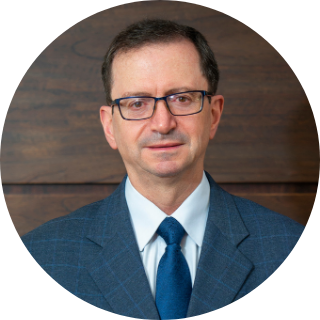 Santiago Acosta-Aide
Santiago Acosta-Aide
Santiago Acosta-Aide earned his Doctorate in Philology at the Universidad de La Laguna (Spain) with the Extraordinary Doctorate Prize and is a full professor of Spanish-American Literature at the Private Technical University of Loja – UTPL (Ecuador). He has been a professor at universities in Peru (1987-1993), Russia (1993-1996), Bolivia (1996-1997) and Ecuador (1997 to the present). He has served in university management positions at the Pontifical Catholic University of Ecuador, Ibarra Campus; as Director of the Institutional Project and as Acting Rector at the UTPL (Ecuador), where he has been Academic Vice Rector and, since February 2020, the Rector. He has participated actively as UTPL’s representative at events by major world networks of distance education, such as the European Association of Distance Teaching Universities (EADTU), and the International Council for Open and Distance Education (ICDE). He is the Executive Secretary of the Latin American and Caribbean Institute for Quality in Distance Higher Education (CALED); Director of the Fernando Rielo Chair for Philosophy and Metaphysics at UTPL; and a member of the Idente School of Thought. He has been awarded an honorary doctorate by the University of Los Angeles (Chimbote, Perú).


